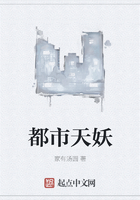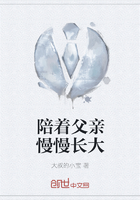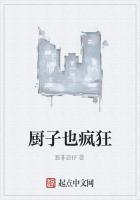“Ah, my boy! my head’s in a whirl,” said the old gentleman, with a somewhat shamefaced smile at his son. “You might come to my aid! We have still the singers to get, you see. The music is all settled, but shouldn’t we order some gypsy singers? You military gentlemen are fond of that sort of thing.”
“Upon my word, papa, I do believe that Prince Bagration made less fuss over getting ready for the battle of Sch?ngraben than you are ****** now,” said his son, smiling.
The old count pretended to be angry.
“Well, you talk, you try!” And the count turned to the cook, who with a shrewd and respectful face looked observantly and sympathetically from father to son.
“What are the young people coming to, eh, Feoktista?” said he; “they laugh at us old fellows!”
“To be sure, your excellency, all they have to do is to eat a good dinner, but to arrange it all and serve it up, that’s no affair of theirs!”
“True, true!” cried the count; and gaily seizing his son by both hands, he cried: “Do you know now I’ve got hold of you! Take a sledge and pair this minute and drive off to Bezuhov, and say that Count Ilya Andreivitch has sent, say, to ask him for strawberries and fresh pineapples. There’s no getting them from any one else. If he’s not at home himself, you go in and give the message to the princesses; and, I say, from there you drive off to the Gaiety—Ipatka the coachman knows the place—and look up Ilyushka there, the gypsy who danced at Count Orlov’s, do you remember, in a white Cossack dress, and bring him here to me.”
“And bring his gypsy girls here with him?” asked Nikolay, laughing.
“Come, come! …”
At this moment Anna Mihalovna stepped noiselessly into the room with that air of Christian meekness, mingled with practical and anxious preoccupation, that never left her face. Although Anna Mihalovna came upon the count in his dressing-gown every day, he was invariably disconcerted at her doing so, and apologised for his costume.
“Don’t mention it, my dear count,” she said, closing her eyes meekly. “I am just going to see Bezuhov,” she said. “Young Bezuhov has arrived, and now we shall get all we want, count, from his greenhouses. I was wanting to see him on my own account, too. He has forwarded me a letter from Boris. Thank God, Boris is now on the staff.”
The count was overjoyed at Anna Mihalovna’s undertaking one part of his commissions, and gave orders for the carriage to be brought round for her.
“Tell Bezuhov to come. I’ll put his name down. Brought his wife with him?” he asked.
Anna Mihalovna turned up her eyes, and an expression of profound sadness came into her face.
“Ah, my dear, he’s very unhappy,” she said. “If it’s true what we have been hearing, it’s awful. How little did we think of this when we were rejoicing in happiness! and such a lofty, angelic nature, that young Bezuhov! Yes, I pity him from my soul, and will do my utmost to give him any consolation in my power.”
“Why, what is the matter?” inquired both the Rostovs, young and old together.
Anna Mihalovna heaved a deep sigh.
“Dolohov, Marya Ivanovna’s son,” she said in a mysterious whisper, “has, they say, utterly compromised her. He brought him forward, invited him to his house in Petersburg, and now this! … She has come here, and that scapegrace has come after her,” said Anna Mihalovna. She wished to express nothing but sympathy with Pierre, but in her involuntary intonations and half smile, she betrayed her sympathy with the scapegrace, as she called Dolohov. “Pierre himself, they say, is utterly crushed by his trouble.”
“Well, any way, tell him to come to the club—it will divert his mind. It will be a banquet on a grand scale.”
On the next day, the 3rd of March, at about two in the afternoon, the two hundred and fifty members of the English Club and fifty of their guests were awaiting the arrival of their honoured guest, the hero of the Austrian campaign, Prince Bagration.















